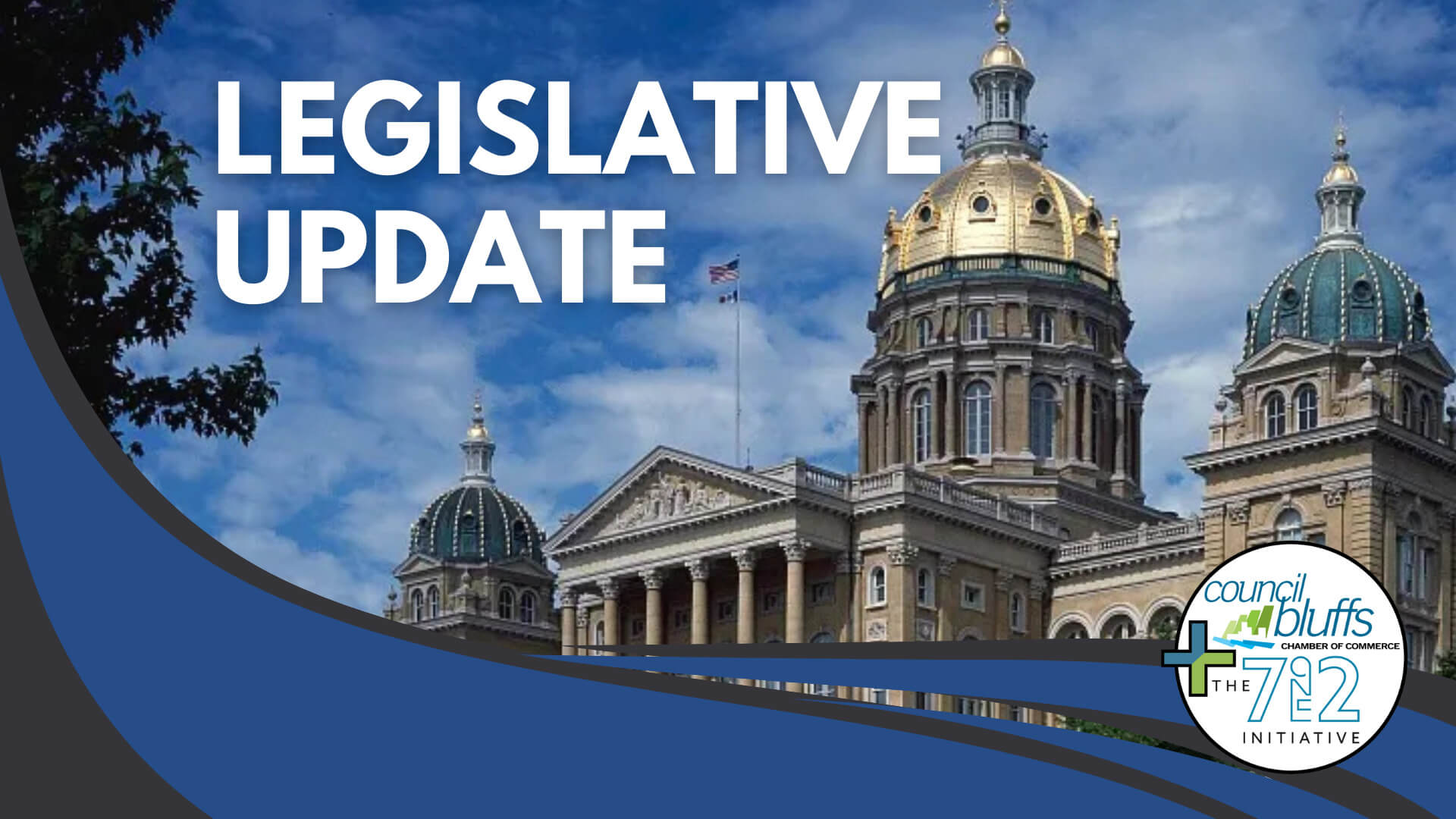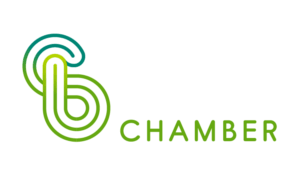April 14, 2025 Legislative Update

Last Week:
Governor Reynolds announced a special election to fill House District 78 would be held on April 29th following the resignation of Representative Sami Scheetz on April 1st. Scheetz resigned from the Iowa House of Representatives after being appointed to fill a vacancy on the Linn County Board of Supervisors.
Governor Reynolds shared that she would not be running for re-election during the 2026 midterms. "Today, I want to share a personal decision with you. One that was not made lightly, but comes with a full heart and a deep sense of gratitude," she said in a simple, straight-to-camera video. "After a lot of thought, prayer and conversations with my family, I have decided that I will not seek re-election in 2026." Governor Reynolds shared in the video that she would be shifting her focus to spending time with her family. Republican leaders across the state have released comments of support thanking her for her years in public service and highlighting her accomplishments while governor.
On Tuesday, the House passed Senate File 167 with a 60-36 vote following the Senate 32-15 vote on Monday. SF 167 sets supplemental state aid for public schools, and is supposed to be set within the first 30 days of session. SF 167 provides schools with a 2% funding increase for the 2025-26 school year, roughly a $127 million increase in state funding. Democrats in both chambers opposed the bill arguing the 2% increase doesn’t keep pace with inflation and will result in school districts having to raise property taxes.
Property Taxes
On Wednesday, Senator Dan Dawson and Representative Bobby Kaufmann introduced companion property tax bills. The new legislation is an updated version of the first property tax bill introduced in March, rather than filing extensive amendments to the original legislation, a new bill was filed to work from moving forward. The changes in the bill are reflective of feedback received from local governments, property taxpayers, and businesses over the past few weeks.
The bill makes serval changes from the original legislation including:
- Increasing the homestead tax exemption from $25,000 to $50,000 for residential property taxpayers.
- Immediately removing the rollback for all classifications except agriculture, effective for the FY27 budget
- Implementing a CPI adjustment alongside the 2% revenue restriction to help local entities manage times of high inflation.
- Providing a minimum budget guarantee to provide small communities certainty in their budgeting process.
“With assessment letters coming out, Iowans have been louder than ever with their concerns about property taxes,” Representative Kaufmann said. “Iowans have expressed their concern, rage, and fear about unpredictable increases and their ability to afford staying in their homes. We are working to provide real relief to Iowans and their families, make Iowa a competitive state to live, and deliver a property tax overhaul that focuses on property taxpayers.”
“When we filed our original bill, we were looking to get it out to the public so we could start receiving feedback and input, and the bill filed today is a result of that feedback,” said Senator Dawson. “Just today, a study was published by Common Sense Institute that tells us Iowa statewide property tax revenue grew at more than double the rate of inflation over the last two decades. These updated proposals continue our goal of rebuilding the property tax system to bring relief, and bring more predictability and transparency to taxpayers, local governments and businesses.”
The Common Sense Institute study referenced by Senator Dawson can be found here.
Budget
On Tuesday, the Senate announced their overall FY26 budget target, set at $9.411 billion. “The budget target released today demonstrates another year dedicated to responsible, conservative budgeting,” said Senator Tim Kraayenbrink, the chair of the Senate Appropriations Committee. “This target continues a trend over the last several years of sustainable funding for priority areas, like education, public safety and health care, while ensuring taxpayer dollars are being allocated wisely and efficiently.”
“Iowa continues to be in a strong position as our state grows and adjusts to the pro-growth, pro-taxpayer policies Republicans have enacted,” said Senate Majority Leader Jack Whitver. “With the implementation of our historic flat tax and conservative spending practices, Senate Republicans are dedicated to yet another responsible budget for this next fiscal year. We look forward to working with the House of Representatives on what that budget looks like as we work towards the final weeks of the legislative session.”
Senate Republicans budget target includes $240 million in new funding for K-12 schools and $463.9 million in new spending for FY26. The Senate’s proposed budget target is a 5.2% increase from the FY25 budget.
During the March Revenue Estimating Conference meeting, the committee set the revenue projection for FY26 at $8.51 billion. Governor Reynolds proposed an overall budget target of $9.43 billion earlier this year. The Senate’s proposed target is $22.2 million under the Governor’s proposal. The House has not released an FY26 budget target yet.
Governor Priorities
Governor Reynolds introduced 10 policy priorities this session, below is the current status of each of the priorities. Bills in italics are enrolled.
- Energy Reform (SF 585 & HF 834) establishes the Right of First Refusal on new transmission projects, provides for flexible rates, and requires rate-regulated utilities to file integrated resource plans.
- The Senate referred the bill to the Appropriations Committee where it advanced out of subcommittee but has not been considered by the full committee. The House referred the bill to the Ways and Means Committee but has not held a subcommittee on the bill yet.
- Unemployment Insurance (SF 607) reduces the number of contribution rate tables and reduces the highest contribution rate to 5.9%.
- The bill was approved by the Senate Ways and Means Committee and is currently eligible for floor debate
- Rural Healthcare (HF 972 & SF 618) expands rural healthcare access and provides funding for physician recruitment and retention.
- The House passed the bill with a 95-1 vote in March, the Senate advanced the bill out of the Appropriations Committee and is currently eligible for floor debate.
- Families First (HF 889 & SSB 1040) provides state employees with 4 weeks of paid maternity leave and 1 week of paid paternity leave.
- The House passed the bill 87-2 in March, the Senate advanced the bill out of the Senate Workforce Committee and placed the bill on the unfinished business calendar.
- Cellphone Use in Schools (HF 782) requires schools to adopt cell phone policies to limit use during the school day.
- The Senate amended the bill and passed it with a 49-0 vote, the House concurred with the Senate passing the bill a second time with a 92-4 vote. The bill is now headed to the Governor’s desk for signature.
- Childcare and Preschool Reform (HF 623 & SF 445) incentives public and private partnerships for childcare providers and provides childcare assistance to childcare workers.
- Both the House and Senate versions survived the first funnel and were placed on the unfinished business calendar to remain eligible.
- Disaster Assistance (HF 982 & SF 619) provides loans for eligible projects under the Disaster Recovery Housing Assistance Program.
- The Senate advanced the bill out of the Appropriations Committee while the House advanced the bill out of the Ways and Means Committee. Both bills are funnel-proof and eligible for floor debate.
- Math Proficiency (HF 784) provides additional professional development training and tools to increase math proficiency.
- The House passed the bill with an 82-16 vote in March, this week the Senate passed the bill with a 46-1 vote, sending the bill to the Governor for signature.
- Wallace Building Sale (HF 846 & SF 295) provides the Department of Administrative Services to sell the Henry A. Wallace Building currently owned by the state.
- The Senate passed the bill with a 33-14 vote in March, the House referred the bill to the Appropriations Committee where it was tabled and likely dead for the remainder of the session.
This week: The House and Senate will likely only debate one or two days this week Both chambers will focus on budget negotiations and receiving feedback on the property tax bill. The 110th day of the session, and the final day for legislators to receive per diem expenses, is May 2nd.
